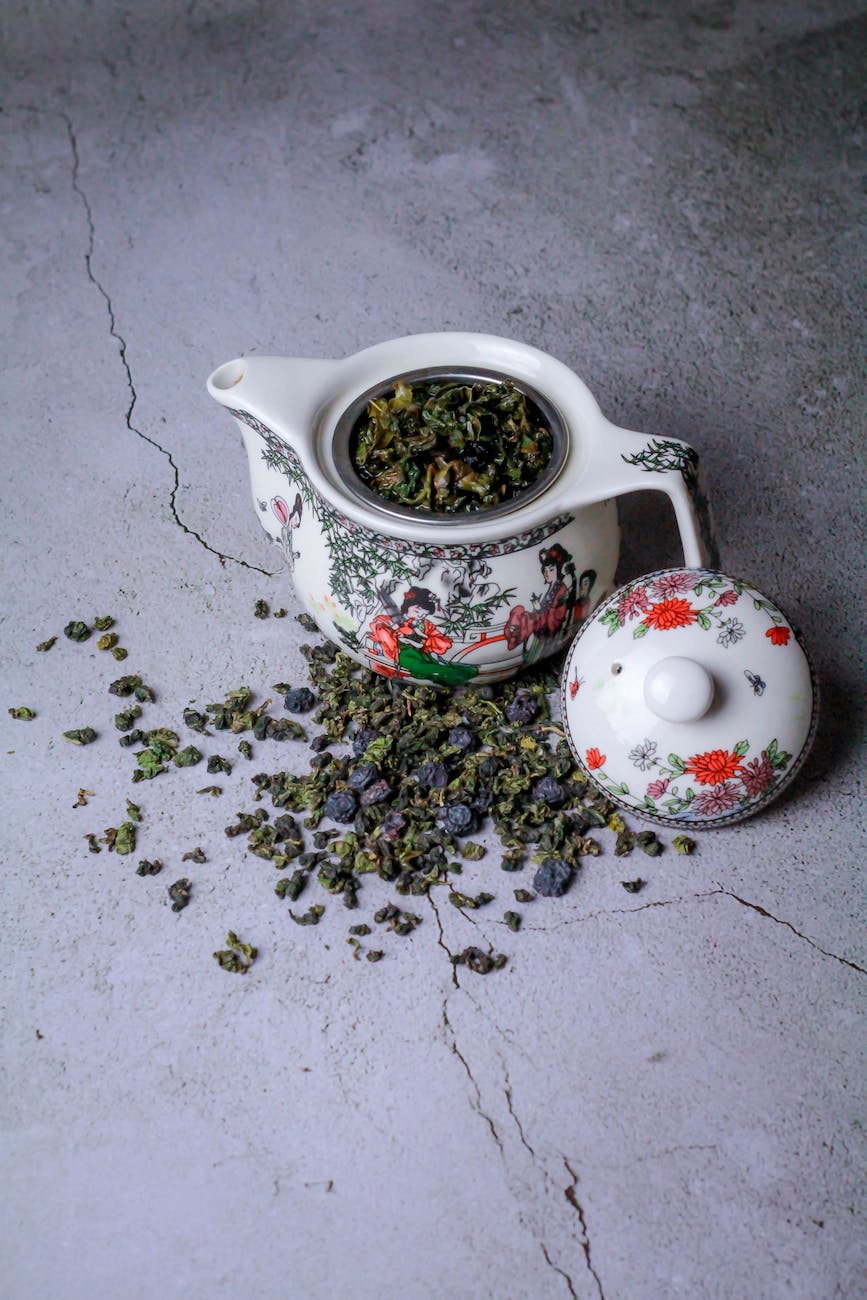
Hello, health enthusiasts! 👋 Are you on a quest to find the perfect brew to aid your weight loss journey? Look no further! Oolong tea, a traditional Chinese tea, is gaining popularity worldwide for its numerous health benefits, particularly its potential to aid in weight loss. This blog post will take you on a deep dive into the world of Oolong tea and its weight loss benefits. So, let’s steep into the details! 🚀
🔥 Oolong Tea: A Fat Burning Furnace
Oolong tea is known to boost metabolism, which can increase your body’s energy expenditure and promote fat burning. It’s like turning your body into a fat-burning furnace! So, if you’re looking to shed some pounds, a cup of Oolong tea might be just what you need! Here’s how it works:
- Boosts Metabolism: Oolong tea contains compounds that can help increase your metabolism, leading to more calories burned throughout the day.
- Promotes Fat Oxidation: The caffeine and antioxidants in Oolong tea can help promote fat oxidation, helping your body to use fat as a fuel source.
- Aids in Weight Management: Regular consumption of Oolong tea, along with a balanced diet and regular exercise, can aid in weight management.
🎯 Targeting Tummy Fat with Oolong Tea
One of the most exciting benefits of Oolong tea is its ability to target fat in specific areas of the body, particularly the tummy and upper arms. So, if you’re looking to trim down these areas, Oolong tea could be your secret weapon! Here’s why:
- Reduces Abdominal Fat: Some studies suggest that the polyphenols found in Oolong tea can help reduce abdominal fat by improving fat metabolism.
- Helps Tone Upper Arms: Regular consumption of Oolong tea, along with targeted exercises, can help tone the upper arms by promoting fat oxidation.
💪 Oolong Tea: A Nutrient Powerhouse
Oolong tea is packed with essential nutrients like theanine and Vitamin C, which can contribute to overall health and wellbeing. It’s not just about weight loss; it’s about holistic health! Here’s what you’re getting in each cup of Oolong tea:
- Theanine: This amino acid can help reduce stress and promote relaxation, which can be beneficial for weight management.
- Vitamin C: This essential vitamin is a powerful antioxidant that can help protect your body from damage by free radicals.
- Polyphenols: These compounds have been linked to a variety of health benefits, including weight loss and improved gut health.
🍵 Oolong Tea: The Hydration Hero
Staying hydrated is crucial for maintaining a healthy metabolism and aiding digestion. Oolong tea can be a tasty way to stay hydrated while reaping all its health benefits. Here’s how it can help:
- Promotes Hydration: The water content in Oolong tea can contribute to your daily fluid intake, helping to keep you hydrated.
- Aids Digestion: Staying hydrated can help ensure smooth digestion and prevent issues like constipation, which can be beneficial for weight loss.
🍬 Oolong Tea: The Sugar Regulator
Regular consumption of Oolong tea can help regulate blood sugar levels, which can be particularly beneficial for those looking to lose weight. Stable blood sugar levels can help prevent cravings and overeating. Here’s how Oolong tea can help:
- Regulates Blood Sugar Levels: The polyphenols in Oolong tea can help regulate blood sugar levels, preventing spikes and crashes that can lead to cravings.
- Reduces Cravings: By keeping your blood sugar levels stable, Oolong tea can help reduce cravings, making it easier to stick to a healthy diet.
🍵 Choosing the Best Oolong Tea for Weight Loss
When it comes to choosing the best Oolong tea for weight loss, it’s all about personal preference. Some people prefer the light, floral notes of a high mountain Oolong, while others might enjoy the robust, earthy flavor of a dark roasted Oolong. The key is to find an Oolong tea that you enjoy, so you’ll be more likely to make it a regular part of your routine.
🍵 How to Use Oolong Tea for Weight Loss
Incorporating Oolong tea into your weight loss routine is simple. Just brew a cup of Oolong tea and enjoy! You can drink it hot or cold, depending on your preference. For best results, try to drink it without adding any sweeteners. If you prefer a sweeter tea, consider adding a small amount of honey or stevia.
📚 FAQs About Oolong Tea and Weight Loss
1. How does Oolong tea aid in weight loss?
Oolong tea aids in weight loss by boosting metabolism, promoting fat oxidation, and helping regulate blood sugar levels. The polyphenols in Oolong tea can help increase your metabolism, leading to more calories burned throughout the day. They also promote fat oxidation, helping your body to use fat as a fuel source. Additionally, Oolong tea can help regulate blood sugar levels, preventing spikes and crashes that can lead to cravings.
2. How often should I drink Oolong tea for weight loss?
While there’s no set rule, many experts suggest drinking 2-3 cups of Oolong tea per day for weight loss benefits. However, it’s important to remember that everyone’s body is different, and what works for one person might not work for another. Always listen to your body and consult with a healthcare provider if you have any concerns.
3. Can Oolong tea help target belly fat?
Some studies suggest that the polyphenols found in Oolong tea can help reduce abdominal fat by improving fat metabolism. However, it’s important to remember that Oolong tea is not a magic bullet for weight loss. A balanced diet and regular exercise are also crucial for reducing belly fat.
4. Is Oolong tea safe to drink every day?
Yes, Oolong tea is generally safe to drink every day. However, it does contain caffeine, so if you’re sensitive to caffeine, you might want to limit your intake or opt for a decaffeinated version. As always, it’s a good idea to consult with a healthcare provider if you have any concerns.
5. Can I add sweeteners to my Oolong tea?
While it’s best to drink Oolong tea without any sweeteners to reap its full weight loss benefits, if you prefer a sweeter tea, consider adding a small amount of honey or stevia. Avoid adding sugar, as it can add extra calories and spike your blood sugar levels.
6. Can I drink Oolong tea if I’m pregnant or breastfeeding?
While Oolong tea is generally safe, it does contain caffeine, which should be limited during pregnancy and breastfeeding. If you’re pregnant or breastfeeding, it’s always a good idea to consult with a healthcare provider before making any significant changes to your diet.
7. Can Oolong tea replace my regular workout?
No, Oolong tea should not replace regular physical activity. While it can aid in weight loss, a balanced diet and regular exercise are crucial components of a successful weight loss plan. Think of Oolong tea as a helpful addition to a healthy lifestyle, not a replacement for one.
Conclusion
So, there you have it, tea lovers! 🎉 Oolong tea is not just a delicious brew; it’s also a powerful ally in your weight loss journey. However, it’s important to remember that while Oolong tea can aid in weight loss, it’s not a magic bullet. A balanced diet and regular exercise are also crucial components of a successful weight loss plan. Here’s to a healthy and happy weight loss journey! 🏃♀️💕
Tags: Weight Loss, Oolong Tea, Metabolism, Fat Burning, Hydration, Blood Sugar Regulation, Nutrition.











